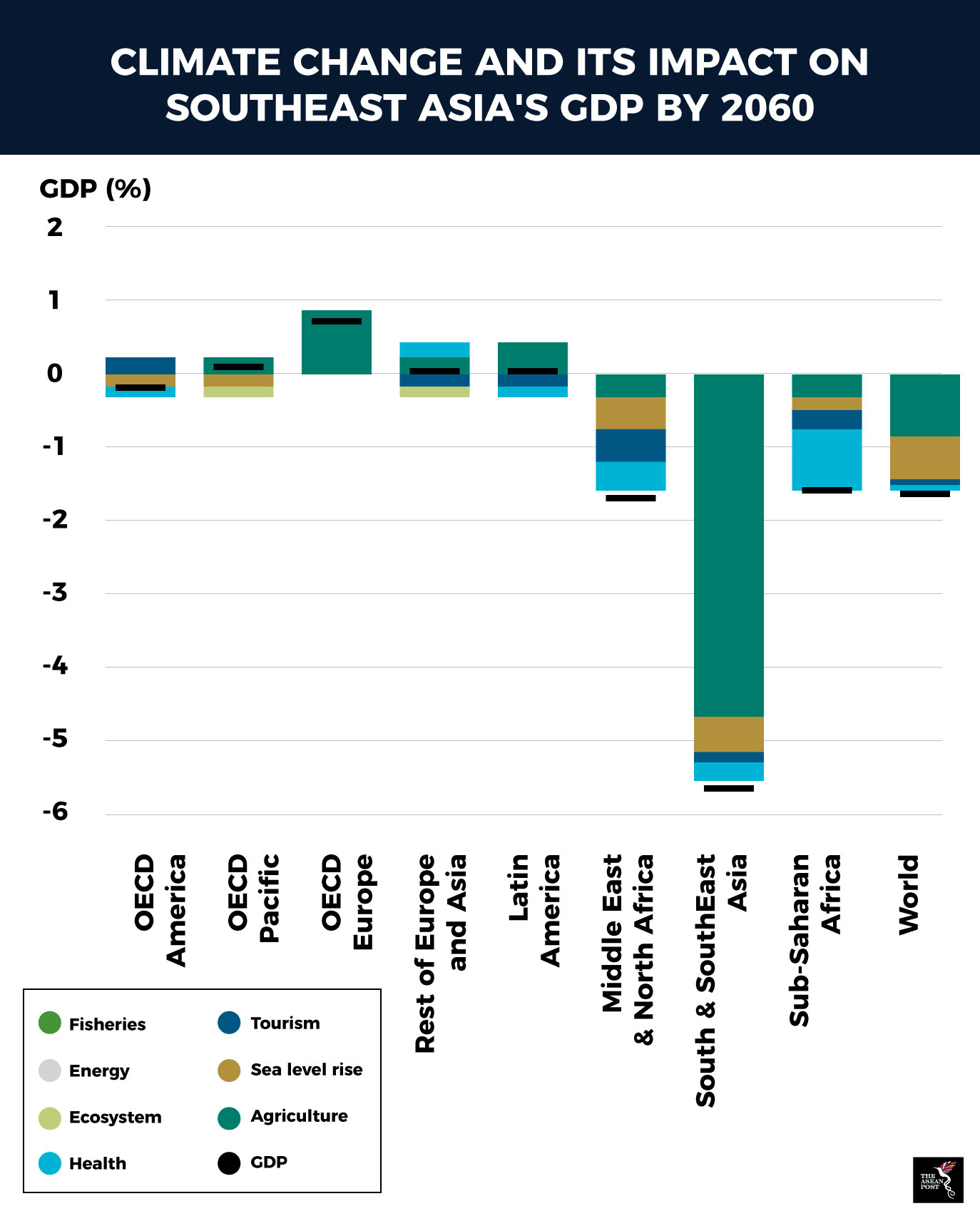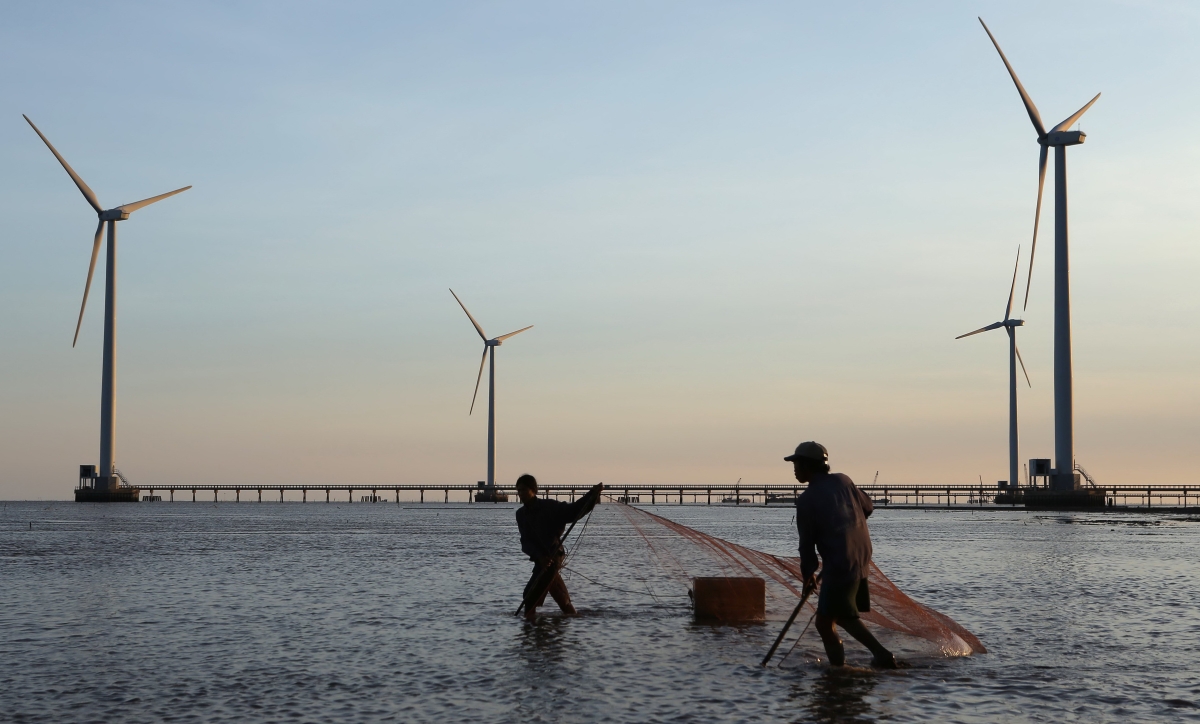Across the globe, the paths of economic growth and development are on an unsustainable trajectory, risking the natural assets and environmental services upon which long-term economic growth and human well-being are dependent on. Addressing natural capital depletion, pollution, the loss of biodiversity, and climate change is urgent in developing nations. These environmental trepidations threaten to undermine development efforts and reverse the gains made thus far.
Based on a report by the Organisation for Economic Co-Operation and Development (OECD), 65 percent of ASEAN’s population is expected to live in urban areas by 2050. Cities and their land-use patterns as well as infrastructure are being shaped now, and will determine levels of pollution, energy consumption, and resilience for decades to come.
The OECD also pointed out that the rapidly modernising region that is Southeast Asia is projected to grow at a robust rate of 5.2 percent between 2016 and 2020.

Source: Organisation for Economic Co-operation and Development (OECD)
Regional collaboration
The green growth initiative is a commendable effort to balance a need for economic profit while sustaining the environment, whereby the former does not compromise the latter. With its headquarters in Seoul, South Korea, the Global Green Growth Institute (GGGI) is an international organisation that aims to promote green growth, providing study and stakeholder engagement to replace the more typical methods of industrial development.
In 2016, ASEAN and the GGGI discussed the possibility of a potential collaboration in green growth for the region. The former Secretary-General of ASEAN, Le Luong Minh met the President of GGGI and former Premier of Indonesia, Dr Susilo Bambang Yudhoyono to address environmental concerns within Southeast Asia. Being one of the most vulnerable locations to climate change impacts, Minh emphasised the promotion of low carbon development as one of the primacies of ASEAN. In the discussion, he also shared ASEAN’s initiatives in tackling climate change, with sustainable peatland management being one of the key points highlighted. This is to reduce greenhouse emissions from peatland fires which is an implementation of the ASEAN Agreement on Transboundary Haze Pollution. Furthermore, Minh recognised the existence of synergies and mutually-enforcing action plans between ASEAN’s Vision 2020 and the United Nations’ (UN) Sustainable Development Goals. As of now, there are six ASEAN countries that are part of the Global Green Growth Institute (GGGI); Cambodia, Indonesia, Lao PDR, the Philippines, Thailand and Vietnam.
By means of innovation, sustainability is an opportunity for growth. This mindset or viewpoint moves away from the archaic way of thinking, in that economic progress has to be at the expense of the environment; one that is pillaged and exploited for pure financial profit. Green growth strategies not only boost the advancement of technological solutions which countries can export, but the application of these mechanisms will help countries and organisations save on costs pertaining to energy, water, and raw materials. According to Yvo de Boer, Director General of the Global Green Growth Institute (GGGI), greater resource efficiency is key as sustainability will only add to a company’s brand image.
“Sure, coal is cheaper than natural gas or renewables but if you factor in the healthcare spending on pollution-related ailments and premature deaths, coal is actually very expensive to society,” de Boer explained. Energy companies ought to think long-term and consider both, the economic and environmental implications of using coal. A successful transition to a green economy growth model could potentially create new employment opportunities and investments for the region.
A study by the International Renewable Energy Agency (IRENA) indicated that renewable energy jobs hit an estimated 7.7 million four years back, which is indicative of bigger numbers to come this year.
On the whole, the transition to green growth from traditional plundering of the environment by the industrial sector will bring more good than harm. As rational creatures, humans have the moral obligation to care for the environment, which in turn sustains the flora and fauna required for our own survival in the short and long term. Sustainable approaches to economic advancement ought to be adopted as soon as possible by governments across the world, not only in Southeast Asia. As such, the establishment of the GGGI is a step in the right direction.
